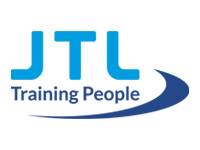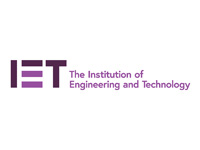On 6 June 2024 a panel of expert speakers joined representatives from electrotechnical businesses in Manchester to discuss national challenges from a regional perspective.
Nick Woollacott, Labour Manager at B-GEN launched the first session at the Devolved Skills & Procurement in Greater Manchester event, by outlining the issues the built environment sector faces in the region, particularly those associated with the skills shortage. Andrew Eldred COO, at the ECA, detailed the scale of the challenge and discussed how an Electrotechnical Training & Careers Alliance could help address the shortage of skilled workers. Richard Clarke, National Apprenticeships and Skills Officer, Construction, at Unite, spoke next about routes to competence. He highlighted the work to raise the bar on standards, following the tragedy at Grenfell, and the opportunity to professionalise the sector and improve standards and safety.
Policy Director at GM Chamber of Commerce GM Chamber, Chris Fletcher, gave insights into how Local Skills Improvement Plans can help meet the Skills gap. Joe Crolla, Principal Skills Manager, Employer Engagement & Insights at GMCA followed, outlining the Authority’s priorities and ambitions including the Greater Manchester Baccalaureate (Mbacc). Joanne Taylor, Vice Principal, and Billy Gilchrist, Business Innovation Advisor, from Hopwood Hall College, rounded out the topic with the important role training providers play in ensuring apprenticeships meet the needs of industry, including the Experienced Worker Assessment developed through ECS structures. A lively Q&A, chaired by Jay Parmar, CEO at JIB, discussed the challenges the industry faces as it strives to secure enough competent workers, along with how JIB companies can get to the front of the queue for winning work on this basis. Discussions continued over the mid-morning break.
The programme then shifted focus onto procurement. Rob Driscoll, Director of Legal and Business at ECA outlined the aims of the Procurement Act 2023, including a simpler and more effective regulatory system and competitive, flexible procedures. He also discussed the broader approach to ‘value’ encompassing socio-economic and environmental benefits. Jason Poulter, National Officer Construction at Unite talked about how the highest standards of installation can be achieved by supporting productive and secure jobs in the sector. He referred to the availability of free to use access systems, such as ECS Check for Clients and the Supply Chain, to maintain visibility and how JIB is supporting authorities with high level data insights, LMI, and social value. He also touched on the benefits this will create within the Greater Manchester Community.
The final speaker of the morning was Lee Rossall, Commercial Lead at GMCA. He shared the principles and priorities behind the Authority’s approach to procurement, outlining the change of approach required by the 2023 Act. He went on to describe how the shift from MEAT (Most Economically Advantageous Tender) to MAT (Most Advantageous Tender) will change the process.
The Q&A session prompted further discussion about the changes heralded by the Act and the ways the GMCA’s Good Employment Charter could be aligned with the JIB’s National Working rules.
Stephen Brennan, Operations Director at Picow Engineering Group commented that the event: “explained some of the challenges in relation to resource planning for the future, whilst also giving information on how changes in procurement law may support smaller contractors. “
Jay Parmar, CEO at the JIB said: “Our ambition to deliver a safe and sustainable future nationally, is inextricably linked to having a regional supply of skills with a clear procurement framework. JIB has helped to bring together a powerful combination of employer, employee, local government and training infrastructure to deliver this at pace. JIB will continue to support our members to maximise on key opportunities and shine a bright light on the high quality work and skills being delivered by JIB members and their workforce.”







